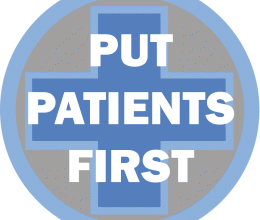
By Jenna Prochaska, Staff Attorney, Women's and Reproductive Rights Project
For nearly forty years, Illinois law has allowed doctors, hospitals and other health care providers to withhold medical information from their patients based on religious objections. That changed on January 1, 2017, when a new law went into effect. This law amended the Illinois Health Care Right of Conscience Act (HCRCA) to incorporate critical protections for Illinois patients, ensuring that patients receive the information they need to make appropriate medical decisions.
The HCRCA has long shielded health care providers from the legal consequences of their religiously based denials of care and information, including by creating a defense to malpractice and disciplinary proceedings. Aside from a narrow exception for emergency situations, the law contained no protections for patients. As a result, before the recent amendment, patients who were harmed when their doctors withheld important information about their medical care were left without legal recourse.
Physicians like Doctors Sabrina Holmquist and AuTumn Davidson have seen the dangerous effects of the law. They have treated patients suffering from complications in pregnancy who came to them in dire circumstances after having been turned away from religiously-affiliated providers without treatment or information about their options. A fertility specialist in Illinois has similarly seen how the law hurt patients. He has seen patients treated by practitioners who oppose in vitro fertilization and other treatments on religious grounds. These patients were kept in the dark about the treatment options that had the best chance of resulting in pregnancy. In one such case, by the time the patient learned the information she had been denied by the religiously-affiliated provider, her chances of achieving her goal of conceiving with her own eggs had been reduced to almost nothing.
Patients like Mindy Swank, Angela Valavanis, and Melanie Jones have also spoken out about the harms of the HCRCA, based on their own first-hand experiences of being turned away from a religiously-affiliated health care provider without all of the information they needed to make informed medical decisions and access care. Unfortunately, they are not alone. In Illinois, nearly one in three hospital beds is in a facility that is required to comply with broad restrictions on health care imposed by the U.S. Conference of Catholic Bishops. These restrictions prohibit a wide range of services, including reproductive health services – even when a patient’s life or health is in jeopardy. Some patients are denied information because of these directives – which are imposed on all Catholic health care facilities and the individuals who work in them.
Many health care providers practicing in religiously-affiliated facilities encounter conflicts between their professional and ethical obligations to patients and the restrictions their facilities impose. They may be put in situations where they feel that “their hands are tied”, as the restrictions prevent them from providing honest counseling to their patients. This conflict undermines the doctor-patient relationship, which relies on trust and open communication. It also prevents patients from making informed medical decisions for themselves. That is why the amendment to the HCRCA was so critical.
The amendment brought necessary clarity to the rights of patients and providers under the HCRCA. While the law still permits providers to limit the care they offer in accordance with their religious beliefs, the amendment ensures that patients will not suffer harm by being left in the dark about their medical circumstances and treatment options. It also brought Illinois law in line with basic medical ethics. Leading medical organizations agree, and – for that reason – supported the law and are opposing current efforts to block it.
Health care providers who wish to continue to impose their personal religious beliefs on unsuspecting patients by withholding important medical information have filed legal challenges in an effort to block the law. If they prevail, Illinois residents will continue to be denied critical medical information without any legal recourse. We are confident that the judges hearing these cases will conclude that these new patient protections fully accord with state and federal law, and that blocking them from taking effect would hurt Illinois patients.
Because of this new law, Illinois patients can finally walk into the doctor’s office with the assurance that their doctor will not hide information relevant to their medical circumstances or treatment options on the basis of the doctor’s or facility’s religious objections. This is a critical step forward for the patients of Illinois.